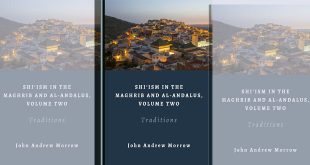A three-day conference on Salafism began in Istanbul Friday, where leading academics and experts debated the merits and demerits of the conservative movement in the modern world.
Founding President and Sociology Professor in Ibn Khaldun University Recep Senturk told the conference Salafism as it appears in modern times “is a strategy developed to destroy Islam”.
“Those who want to wipe out Islamic civilization have created today’s Salafism,” Senturk said.
The conference has been organized by the Istanbul Foundation for Research and Education (ISAR) — a research center established to train Muslim scholars specializing in Islamic sciences and various disciplines.
The professor said Salafism “degrades Islam into a book alone [Quran]”.
The belief that “Quran is enough for everything” would mean to ignore all the richness and accumulation of Islamic civilization, he said.
“Civilization is a social system and a moral order,” Senturk said.
“Islam is a civilization based on Quran and Hadith [Prophet Mohammad’s sayings and deeds] – not a matn/nass [text] alone.”
Experts discussed how Salafism and “Textual Islamism” attempt to understand Islam only from Quranic text and Hadith; it also analyzed how it dismisses the different schools of thoughts and fiqh in the religion as legitimate means of understanding and interpreting Islamic sources and properly practicing ones faith.
Senturk said modern-day Salafism “calls to eliminate Islamic civilization”.
“They mean ‘Let’s turn to matn/nass [text of Quran], and destroy the rest — our Islamic institutions, philosophy, Islamic law, art, and architecture.”
He called for the need to combine religion, science and knowledge to find solutions to today’s problems.
source:yenisafak
 Ijtihad Network Being Wise and Faithful Muslim in the Contemporary World
Ijtihad Network Being Wise and Faithful Muslim in the Contemporary World
